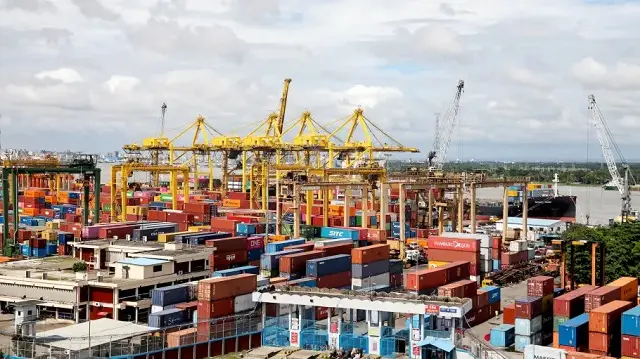A major customs strike at Bangladesh’s busiest seaport, Chittagong, has brought cargo processing to a standstill, threatening a $222 million blow to the country’s garment export sector — which makes up nearly 80% of Bangladesh’s foreign revenue.
Key Facts at a Glance:
- Daily cargo impacted: 7,000–8,000 containers
- Estimated loss to garment sector: $222 million
- Garments = ~80% of Bangladesh’s export revenue
- Cause: NBR restructuring proposal sparks walkouts
Customs Officials Walk Out Over Revenue Reform Plans
According to multiple reports, customs officers at Chittagong Port have refused to process cargo in protest of government plans to restructure the National Board of Revenue (NBR). The reform proposal would split the agency into separate divisions — a move that has sparked widespread fears among tax staff over job security and autonomy.
The strike has halted the handling of the port’s typical 7,000–8,000 daily container loads, paralyzing operations and disrupting international trade.
Garment Industry Faces Severe Fallout
Mahmud Hasan Khan, president of the Bangladesh Garment Manufacturers and Exporters Association (BGMEA), warned the disruption could bankrupt many factories, stating:
“If this continues, the recovery costs for our industry could be staggering.”
Bangladesh’s ready-made garments (RMG) industry is particularly vulnerable, as it relies on just-in-time delivery and tight global schedules. Exporters fear missed deadlines, penalty clauses, and reputational damage in major markets like the U.S. and EU.
Government Declares Customs Work ‘Essential Service’
Interim Prime Minister Muhammad Yunus has declared customs and tax operations essential services under emergency law and has ordered striking officials to return. He warned of strict disciplinary action against those continuing to obstruct port operations.
Meanwhile, business chambers and exporters’ groups are calling for a swift resolution, warning that ongoing disruption could:
- Deepen macroeconomic instability
- Damage investor confidence
- Worsen supply chain backlogs
Why This Matters
This crisis underscores Bangladesh’s economic dependence on its export infrastructure — especially the Chittagong Port, which handles over 90% of the country’s trade volume. It also highlights how public-sector labor unrest can create ripple effects across the global supply chain.











